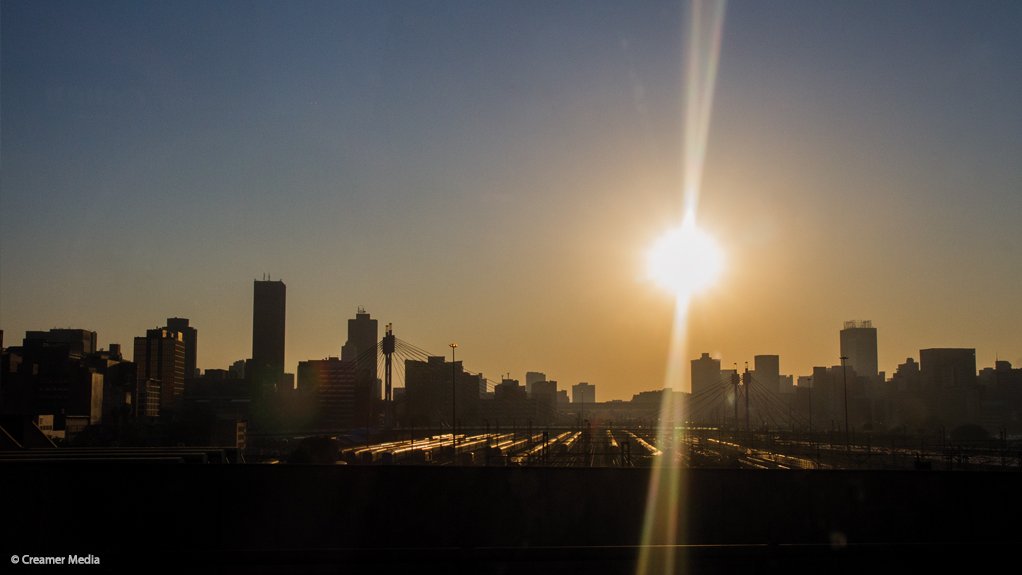Despite collecting half a billion rand for the municipality, the City of Johannesburg has told its debt collectors it cannot pay them for the work they have done.
Ninety-three contracted companies have not been paid in six months.
News24 understands some of these companies have had to retrench employees because of it.
The City brought in the debt collectors to bolster its massive R80.9-billion budget, which can only be achieved if the City ups its revenue collection.
In the last financial year, the revenue collection was R3.4-billion below budget as the City only collected 75% of the revenue.
The revenue collection norm is 95%, according to National Treasury's Circular 71.
The City has put pressure on residents by introducing substantial rate increases on top of a valuation increase this year.
Still, despite paying more taxes, residents are getting fewer services.
Vast parts of Johannesburg have been without water from August until the present.
Not because the dams are low but because Johannesburg Water's reticulation is full of holes.
Last week, the water entity admitted to losing 24.1% of the potable water it buys from Rand Water to leaks.
Further, 9.4% of the water is given away, and 12.7% is stolen. So, the City loses out on revenue for 46.1% of its water.
In his budget speech, Finance MMC Dada Morero said the electrical losses were around 30%.
In the inner city, thousands of people are crammed into dangerous hijacked buildings because the city has four shelters for 20 000 indigent people, and there is not enough affordable accommodation for those who do earn money.
The deadly Usindiso fire brought the situation home as more than 70 people died, including a municipal worker. The derelict building is what she could afford to live in.
A month before that, a road in one of the busiest parts of the CBD exploded. Methane gas had built up because the manholes were welded shut to prevent cable theft.
The list goes on.
On Wednesday, DA Johannesburg caucus leader Belinda Kayser-Echeozonjoku released a statement saying the debt-collecting companies had collected R500-million in the first two months of the year but had not been paid in six months.
When asked, she would not reveal the names of any of the debt-collecting companies because they had asked for anonymity since they depended on work from the City.
Kayser-Echeozonjoku said some companies had had to retrench staff, and others closed because of the nonpayment.
"As suppliers go unpaid, basic service delivery collapses and delayed responses from Joburg Water and other entities have become the norm. The executive should not be surprised when they are voted out come the dissolution of council," she said.
In a recording, given to News24 by another source who cannot be named for fear of victimisation, of a meeting between the City and the debt collectors, a City official is heard telling the suppliers her department has done everything to try to get the service providers paid.
"The challenge that we are sitting with is that the City has no money. The City is broke," the woman could be heard saying.
She went on to say in motivating City officials to pay, the department said collections had slowed because the debt collectors had no means to push harder or go for summonses, etc. because they had yet to be paid.
"When we're told that there is no money - we don't know what to do," the official said.
On Wednesday, Morero told News24 the City should have paid the service providers on Tuesday, and they were right to expect payment then - especially after six months of work.
He said they would be paid a combined R37-million by next Friday.
Morero added it took so long because a "process of validation" had to happen first.
"We were auditing that information. It's just unfortunate that [it has taken so long].
"We do apologise profusely. Of course, after six months, [the debt collectors] expect to be paid, and they should have been paid by Tuesday."
He said the City was doing well to collect debts, and it was now that the benefits of those debts were starting to be felt.
However, Morero added City finances were still tight as it had hoped to collect 90% of its revenue by this time, whereas it had only collected 88% of its revenue.
The City is aiming for a 91% revenue collection.
In August, Morero said revenue collection in the City had gone from under 80% in February to 87%, and he expected 90% in October.
He was speaking on the back of the GCR Ratings downgrade, which took the City's national scale long-term user rating from stable to negative.
In its downgrading, published on 28 July, at the end of the 2022 financial year, consumers owed the City R46.2-billion, up from R40-billion in the previous year.
The City's debt was R24-billion at the end of the 2022 financial year.
Johannesburg's unauthorised, irregular, fruitless, and wasteful expenditure rose to R20.8-billion in the 2022 financial year.
The City needs R4.3-billion a month to operate.
In his inaugural budget speech, Morero said the City's debt levels had reached unaffordable amounts, "and this led to financial institutions showing reluctance in providing funding to the City."
In the last financial year, the City could only raise R1.5-billion in loans compared to the budgeted amount of R2.1-billion.
EMAIL THIS ARTICLE SAVE THIS ARTICLE
To subscribe email subscriptions@creamermedia.co.za or click here
To advertise email advertising@creamermedia.co.za or click here











